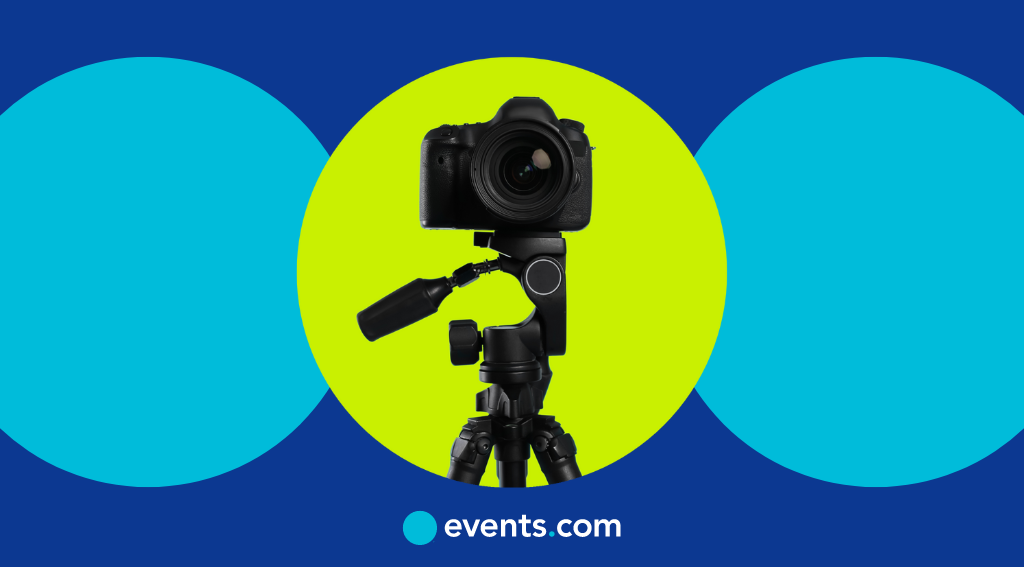You have a stellar event in the works, but now it’s time to attract your audience. Creating an event marketing campaign that highlights the best of your event, reaches your target audience, and leads to conversions is crucial. A key part of this process is creating an event content strategy, which will be seen by your potential attendees and will take your event marketing to the next level.
Why Is Content Marketing Important for Events?
There’s no shortage of events in a world that values experiences. With this constant flow, it’s important to find innovative ways for your brand to stand out. Most attendees are now digitally focused and receive the bulk of their advertising through means of content marketing via social media and online search. As you create innovative content, you can easily and creatively connect with potential attendees and let them know what they can expect from your event. Content marketing serves as a way for you to establish your brand’s unique voice, engage with and learn about your potential attendees, and expand your audience.
Trust and Credibility: Establishes Your Brand as an Authority
Building trust with your event attendees should be one of your primary goals. Although establishing your brand’s presence through curated content is important, your marketing efforts will fall short if the trust factor is missing. Content marketing gives you the opportunity to organically build the trust and credibility your brand needs to create a successful event.
When creating a content marketing strategy for your event, you should be sure to add value for your attendees. You can do this by answering frequently asked questions, addressing concerns, and providing easily accessible information pertaining to your event that your attendees would find useful. Additionally, you can share attendee experiences as a part of your content strategy to help build your credibility and authenticity. As you build trust and credibility, attendees will feel comfortable showing up to your future events knowing that your brand cares for them and their experience.
Enhanced Engagement: Connects With Your Audience
Connecting with your audience is important throughout the entirety of the event planning process. Establishing a relationship with your attendees not only creates loyal eventgoers, but also helps you learn more about them. This, in turn, leads to more effective and strategic event marketing.
Creating relevant and compelling content alone may encourage attendees to interact. However, you can also intentionally add connection points to your content to ensure that you are engaged with your audience. Some options are polls and surveys, giveaways, question-and-answer posts, and prompts. Additionally, a staff member can take the time to respond to those who are commenting, messaging, or posting about your event. The possibilities are endless, and the benefits are undeniable, as this aspect of content marketing makes for a better experience for you and your attendees alike.
Personalization: Collects Data to Understand Attendees
You can’t effectively market to your audience if you don’t understand them. Your content marketing strategy should include ways to learn more about your audience’s demographics, values, and interests. As your audience interacts with your content, you can gather useful information that will help you better serve them at your event and plan successful future events.
It can be a challenge to gather information on your audience in a natural way that they feel comfortable participating in. Some content ideas include customer surveys, online forms, user-generated content, and social media interactions. Additionally, utilizing analytics tools can help you understand what your audience responds to. Once you understand your attendees, you can effectively personalize your content to catch their eyes.
Brand Visibility and Rankings: Helps You Stand Out
Chances are, there are events that are similar to yours and that are targeting the same audience. Creating content that helps you stand out from competitors is a crucial part of brand visibility. A strong content marketing strategy serves as an opportunity to represent your brand and event. As you develop a content strategy, you should consider what your competition is doing, what your attendees are looking for, and what makes your event different.
Lead Generation: Generates and Nurtures Leads
Although content marketing allows you to communicate with your attendees, it’s also an opportunity to generate new leads. As your content is intentionally created and shared with your target audience, it can then be shared by them to their personal network to help you reach a wider audience. Additionally, data-driven content can organically end up on the feed of potential attendees by catering to their interests and values.
5 Steps To Develop a Content Strategy for Your Event
There are many moving parts in the event marketing process, and creating a checklist of must-do items can help ensure that you cover all of your bases. Content marketing goes beyond promoting an event, as it should focus on providing your audience with valuable content and serve as a data gathering point for your brand.
1. Identify Your Target Audience and Build Buyer Personas
Since the point of content marketing for events is to reach your target audience, it’s important to identify who they are. You can do this by considering the type of people you want to see at your event. For example, a music festival with mainstream pop artists might attract a young, artistic crowd. On the other hand, a fitness challenge might attract a more athletic group. As you begin to understand who your event caters to, you will be able to build a buyer persona and decide on the type of content you need to publish.
2. Do Keyword Research To Identify Content Opportunities
Keyword research is an SEO tool oftentimes used to create content that your target audience will find. Various tools can help with this research, including Moz, Ahrefs, and Google AdWords. As you type in words and phrases dealing with your event, the tools will uncover additional keywords and phrases being used in the same category.
As you conduct keyword research for your event, you will discover the keywords and phrases that are most associated with your event. You can then utilize this information to create relevant content that is easily, and even organically, found by your target audience. This information can also help you uncover frequently asked questions or concerns that you can address through your content to show your expertise and increase brand loyalty and credibility.
3. Design a Content Calendar
Content surrounding your event should be posted on a consistent basis. This constant push of content increases your chances of being seen by your attendees, reaching new leads, and becoming memorable. However, this can mean that there is a heavy workload for you and your team. This is where a content calendar comes in handy.
Creating a content calendar ensures that you have a scheduled plan for consistent content. There are various content planning tools and software that you can use to help streamline and automate this work. As you lay out your content marketing plan for the coming weeks or months, you will be able to easily delegate tasks, identify any opportunities or weaknesses, and track overall growth.
4. Create SEO-Optimized Content in the Right Format
The goal of SEO is to create content that is relevant and that will rank high on search engines. As your target audience searches for your event or something similar, your content should be easily accessible to them.
You can optimize your content in different ways, including changing formats and tailoring for the different stages of the sales funnel. Depending on your event and the purpose of your content, you may decide between different types, including long-form, short-form, visual content, blog posts, email marketing, and many more. Additionally, you will want to make sure that the tone of your content matches your event.
5. Promote Your Content on the Right Channels
Promoting an event on social media platforms proves to be a powerful marketing tool when it comes to event content marketing. More than half of the population has a presence on a social channel and spends an average of over two hours a day browsing through content. You should consider creating social media posts a worthwhile task in your content strategy. As you gather information on your audience, take into consideration the channels that they interact with most. Posting your content to the relevant channels will ensure that your audience sees it and interacts with it.
Fuel Your Event Marketing Strategy With Events.com
There are many steps to creating an effective content marketing strategy for your event. Event content creation is a tool that allows you to creatively spread the news about your event, learn more about your attendees, and improve your event strategy for upcoming events. Events.com offers all of the event marketing and management tools you need to execute an unforgettable event. Visit our website to get your free demo today!




